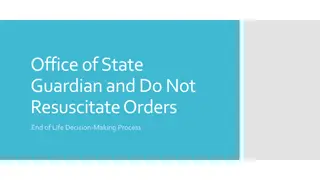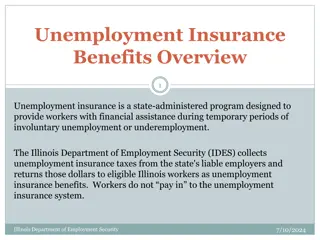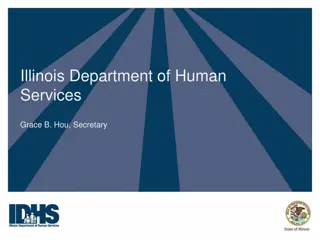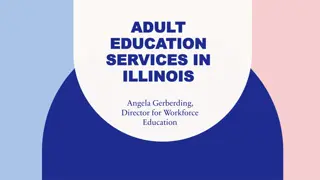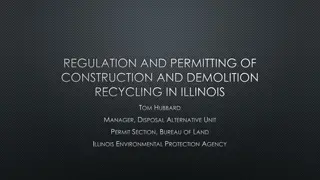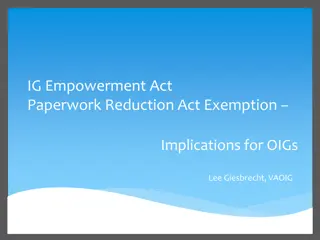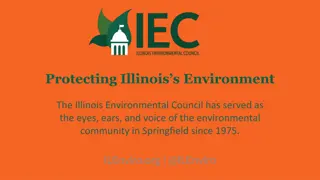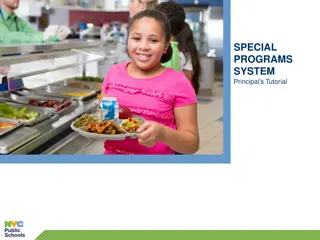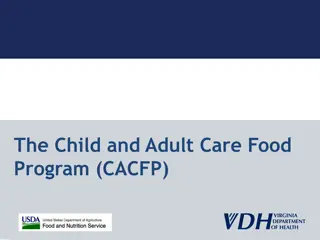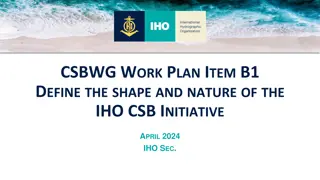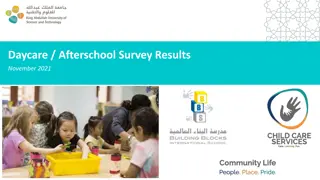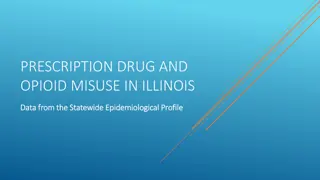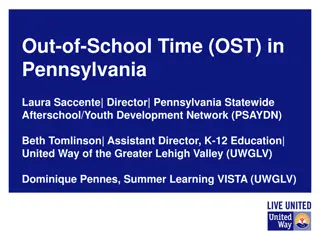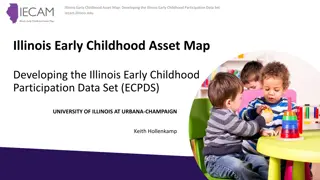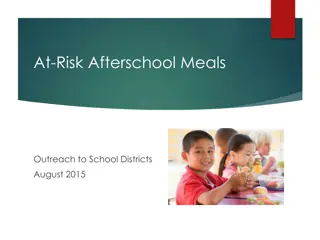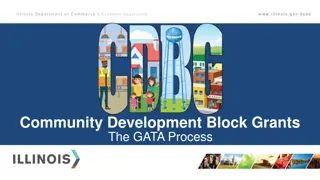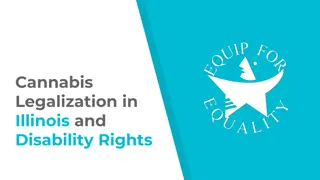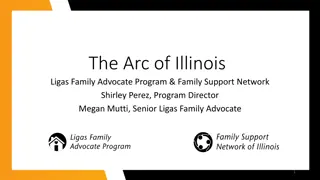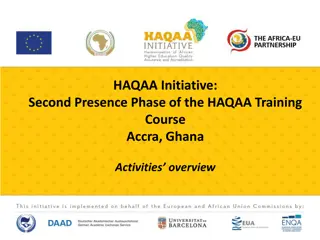Enhancing Afterschool Program Quality in Illinois: ACT Now Initiative
The Illinois Statewide Afterschool Quality Standards, led by Susan Stanton through the ACT Now Network, aim to advocate for quality and affordable afterschool programs for Illinois youth. ACT Now is a coalition partnering with providers, educators, policymakers, and more to develop shared policy agendas, increase program quality, and promote professional development opportunities. The initiative emphasizes the importance of engaging funders, promoting quality practices, and incorporating standards into program reporting.
Download Presentation

Please find below an Image/Link to download the presentation.
The content on the website is provided AS IS for your information and personal use only. It may not be sold, licensed, or shared on other websites without obtaining consent from the author. Download presentation by click this link. If you encounter any issues during the download, it is possible that the publisher has removed the file from their server.
E N D
Presentation Transcript
ILLINOIS STATEWIDE AFTERSCHOOL QUALITY STANDARDS Susan Stanton ACT Now Network Lead
Agenda Welcome Background on ACT Now Background on the Standards How to Use the Standards Next Steps for the Standards Questions
What is ACT Now? A statewide coalition that advocates for quality and affordable afterschool programs for Illinois youth Our partners are: Providers Educators State agency members Community advocates Youth organizations Policymakers
ACT Nows Committees Professional Development Committee Quality Assurance, Outcomes, and Evaluation Committee Policy and Advocacy Committee Provides a forum for ACT Now s public and private partners to develop and pursue a shared policy agenda to increase the quality and availability of afterschool programs Facilitates information sharing and resource coordination to identify and meet the needs of the afterschool field Working on planning regional meetings and policy trainings along with developing trainings for our Quality Standards Promotes the adoption of a common system of Quality Standards statewide and the development of capacity-building, assessment, and evaluation tools, including those linked to Standards
What is ACT Now? ACT Now is a resource for: Learning about policy Networking with other providers Receiving advocacy training Learning about strategies for improving quality in afterschool programs Drawing on technical expertise to inform best practices Connecting with experts on professional development Learning about professional development opportunities
The Importance of Talking to Funders About Quality Build awareness/speak a common language Invest them Professionalize the field and spread quality practices Get credit for your work!
Process Explain the Standards and why they are important Distinguish quality improvement and outcomes Connect quality improvement to their priorities Make connections to family and youth Ask to incorporate quality improvement into reporting 1. 2. 3. 4. 5.
1. Explain the Standards and why they are important Positive outcomes for youth are more likely to occur when they are engaged in high-quality after school programs that use evidence-based methods. These Standards are an aspirational, high bar and a common language to describe afterschool quality.
1. Explain the Standards and why they are important: Background The Standards capture what has been demonstrated, through research, to lead to positive outcomes for children. Developed through a two year collaborative process involving key stakeholders Created with the landscape of the afterschool field in the context of Illinois and the providers input in mind Free, voluntary guidelines Generally applicable to all types of programs with all types of experience
1. Explain the Standards and why they are important: Structure Core Areas Guiding principle that introduces the category Program Standards Delineate the important components of each Core Area Quality Indicators Specific actions or initiatives programs can take to meet each Quality Standard and ways to measure growth for each Quality Standard
1. Explain the Standards and why they are important: Structure Indoor and Outdoor Environments Safety, Health, and Nutrition Professional Development and Qualifications Administration Family and Community Partnerships Youth Development, Programming, and Activities Partnerships with Schools
1. Explain the Standards and why they are important: Resources
2. Distinguish quality improvement and outcomes Most funders are outcomes driven We need quality practices as well to get to positive outcomes Make links to research Need a constant cycle of improvement
3. Connect quality improvement to their priorities Determine your funders priorities (i.e. violence prevention, closing the achievement gap, etc ) Connect any Standards content to their priorities (i.e. youth development) Remind them that you can t meet those priorities without a quality program Example: It is hard to have a program improve literacy if they don t have effective administrative practices or staff professional development
4. Make connections to family and youth Funders care about the communities they are trying to reach Discuss how the Standards improve relationships with youth/families Discuss how family and youth can participate in the assessment process
5. Ask to incorporate quality improvement into reporting Ask funders to value the work that you do Quality improvement should a part of reporting as well as outcomes Feel free to add any other quality improvement related asks here as well
Sign On Illinois Collaboration on Youth The Hub Project, Rochelle, IL Holy Cross/Immaculate Heart of Mary Youth Program, Chicago, IL Illinois Alliance of Boys & Girls Clubs Citizen Schools Illinois United Way of Illinois Fight Crime: Invest in Kids Illinois Children s Home + Aid Marillac St. Vincent Family Services, Chicago, IL Spark Chicago Illinois State Alliance of YMCAs YMCA of Metropolitan Chicago Columbia College Chicago Community Schools After-School All-Stars of Chicago Project Success of Vermilion County American Institutes for Research Project Scope (Springfield, IL) Chicago Public Schools Chicago Lights Erie Neighborhood House, Chicago, IL Gary Comer Youth Center, Chicago, IL Your organization can sign on in support of the Standards ACT Now will use this sign on in its communications and meetings with policymakers and funders To sign-on email stantons@metrofamily.org
Contact Information Susan Stanton, stantons@metrofamily.org Resources can be found at www.actnowillinois.org

 undefined
undefined









